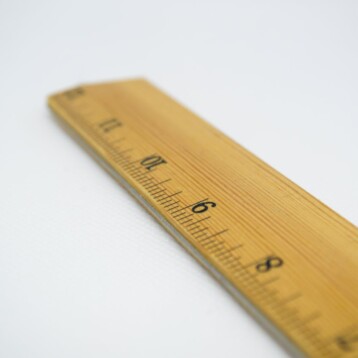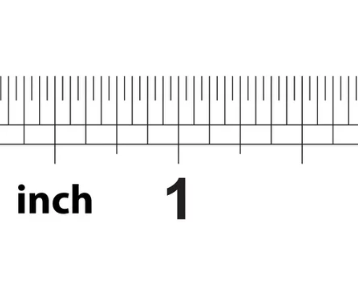In today’s world, phone ringing isn’t always a good sign. Alongside the rise of smartphones has come a surge of unsolicited calls, many of which are scams. These scams often involve tricking people into answering calls from specific area codes, leaving them vulnerable to financial loss. Knowing which area codes to avoid can be a valuable defense against these threats.
The Most Dangerous Area Codes to Avoid: Protect Yourself from Phone Scams
These area codes are frequently used by scammers to trick individuals into answering or returning calls, resulting in hefty charges or personal information theft. Knowing which area codes to avoid can help protect you from falling victim to these schemes.
Area Code 809: The Caribbean Trap

The 809 area code, which the Dominican Republic uses, is one of the most notorious numbers associated with phone scams. It is particularly dangerous because many people mistakenly believe it to be a U.S. number. Scammers using this code frequently employ tactics to encourage victims to return a missed call, often by leaving urgent messages.
Once the victim calls back, they are charged exorbitant fees, sometimes hundreds of dollars per minute, since 809 is considered an international number. The charges are added to their phone bill, and scammers benefit from the excessive rates.
These scammers often craft their messages to sound like family emergencies or other urgent situations, increasing the likelihood that the victim will return the call without thinking twice.
How to protect yourself:
- Do not answer or return calls from the 809 area code unless you know the caller’s identity.
- If you receive a voicemail about an emergency, verify the situation through other means before calling back.
- Use reverse phone lookup services to check suspicious numbers before responding.
Phishing Attacks Are on The Rise For Mobile Users
Area Code 284: British Virgin Islands Scams

The 284 area code is associated with the British Virgin Islands and has been linked to a familiar scam known as the “one-ring scam.” In this scheme, your phone rings once and then disconnects. The idea is to pique your curiosity and prompt you to return the call. When you do, you’re connected to a premium-rate service, racking up hefty international charges.
Scammers might also use automated robocalls or send alarming messages to entice you into returning the call. This tactic is designed to exploit individuals’ natural instinct to respond to missed calls, especially urgent ones.
How to protect yourself:
- Ignore calls that ring once, especially if they come from the 284 area code or other unfamiliar international numbers.
- Use call-blocking features on your phone or third-party apps that identify and block suspicious numbers.
Area Code 473: Grenada and the Caribbean Scheme

The 473 area code is linked to Grenada and other parts of the Caribbean and has become notorious for similar phone scams. As with the 809 and 284 scams, victims are encouraged to return missed calls or respond to voicemails, only to be connected to premium-rate services.
A common variation of this scam involves a voicemail stating that the victim has won a prize or has an urgent matter that requires immediate attention. This prompts individuals to call back, leading to substantial phone bill charges, often without the victim realizing it until it’s too late.
How to protect yourself:
- Avoid answering or returning calls from the 473 area code unless you know the caller’s legitimacy.
- Be skeptical of messages claiming you’ve won a prize or requiring urgent action, especially if they come from unknown numbers.
Can Someone Hack Your Cash App With Your Name?
Area Code 876: Jamaican Lottery Scams

The 876 area code, used in Jamaica, is infamous for lottery scams. These scams involve fraudsters calling victims to inform them that they’ve won a large sum of money, but there’s a catch: the victim must pay taxes or fees upfront to claim their prize. The scammer disappears once the victim sends money, leaving the victim without any winnings.
These scams can be particularly convincing. Scammers use professional-sounding scripts and pose as government officials. They may even provide fake documentation to make the scam seem legitimate. Scammers sometimes resort to threats or intimidation if the victim hesitates to comply.
How to protect yourself:
- If you receive a call from the 876 area code claiming you’ve won a prize, hang up immediately.
- Never send money or provide personal information to claim a prize.
- Report suspicious calls to local authorities or the Federal Trade Commission (FTC).
Area Code 900: U.S.-Based Premium-Rate Scams

Unlike the other international area codes, the 900 area code is based in the U.S. It is commonly associated with premium-rate services, where callers are often charged extra for the call without realizing it. Numbers with a 900 area code are typically used for services like psychic hotlines, adult entertainment, or technical support, but scammers exploit them.
Scammers might use misleading advertisements or calls to lure victims into dialing 900 numbers, resulting in high charges that show up on the victim’s phone bill. Sometimes, the victim may not even realize the cost until after the fact, making it difficult to dispute the charges.
How to protect yourself:
- Avoid answering or calling back numbers that start with 900, as they are often linked to high charges.
- If you must call a 900 number, ensure you fully understand the cost before dialing.
- Check your phone bill regularly for unusual charges and dispute any unauthorized fees.
How to Protect Yourself from Phone Scams
Now that you’re aware of these risky area codes, it’s crucial to take additional steps to protect yourself from phone scams in general. Here are some ways to stay safe:
- Use Call-Blocking Apps: There are numerous apps available that can help you identify and block scam calls. Apps like Truecaller, Hiya, and RoboKiller use databases of known scam numbers to prevent these calls from reaching your phone.
- Enable Do Not Disturb Features: Many smartphones have “Do Not Disturb” options that allow you to silence calls from unknown numbers. This can help reduce the number of unwanted calls you receive while ensuring that essential contacts can still reach you.
- Register with the National Do Not Call Registry: In the U.S., you can add your phone number to the National Do Not Call Registry, which helps reduce the number of telemarketing calls you receive. While this won’t block scam calls completely, it can help cut down on some of the unwanted calls.
- Be Skeptical of Unknown Numbers: If you receive a call from a number you don’t recognize, let it go to voicemail. If the call is necessary, the caller will leave a message. Don’t return calls to unknown numbers unless you can verify their legitimacy.
- Use Reverse Phone Lookup Services: If you’re unsure about a number, you can use free reverse phone lookup services to check its legitimacy before answering or returning the call. Many websites and apps offer this service, allowing you to quickly identify whether a number is associated with a known scam.
- Never Provide Personal Information: Scammers often pose as representatives of trusted institutions, such as banks or government agencies. Always be cautious when asked for personal or financial information over the phone, especially if the call is unsolicited.
- Monitor Your Phone Bill: Keep an eye on your phone bill for any unexpected charges. Contact your phone provider immediately to dispute the charges if you notice any unfamiliar numbers or services.
Conclusion
Phone scams have become more sophisticated over the years, with scammers using specific area codes to target victims. By being aware of dangerous area codes like 809, 284, 473, 876, and 900, you can better protect yourself from falling victim to these schemes. Always exercise caution when dealing with unfamiliar numbers, and take advantage of the tools and resources available to block scam calls before they reach you. Stay vigilant, and you can significantly reduce your risk of becoming a target of phone fraud.









